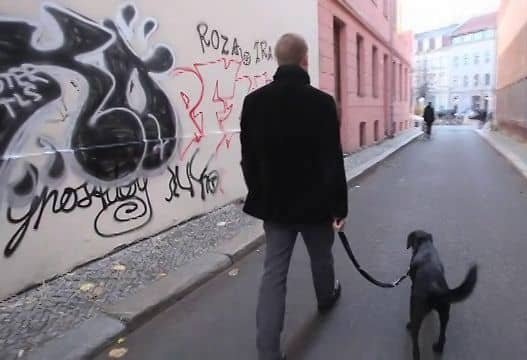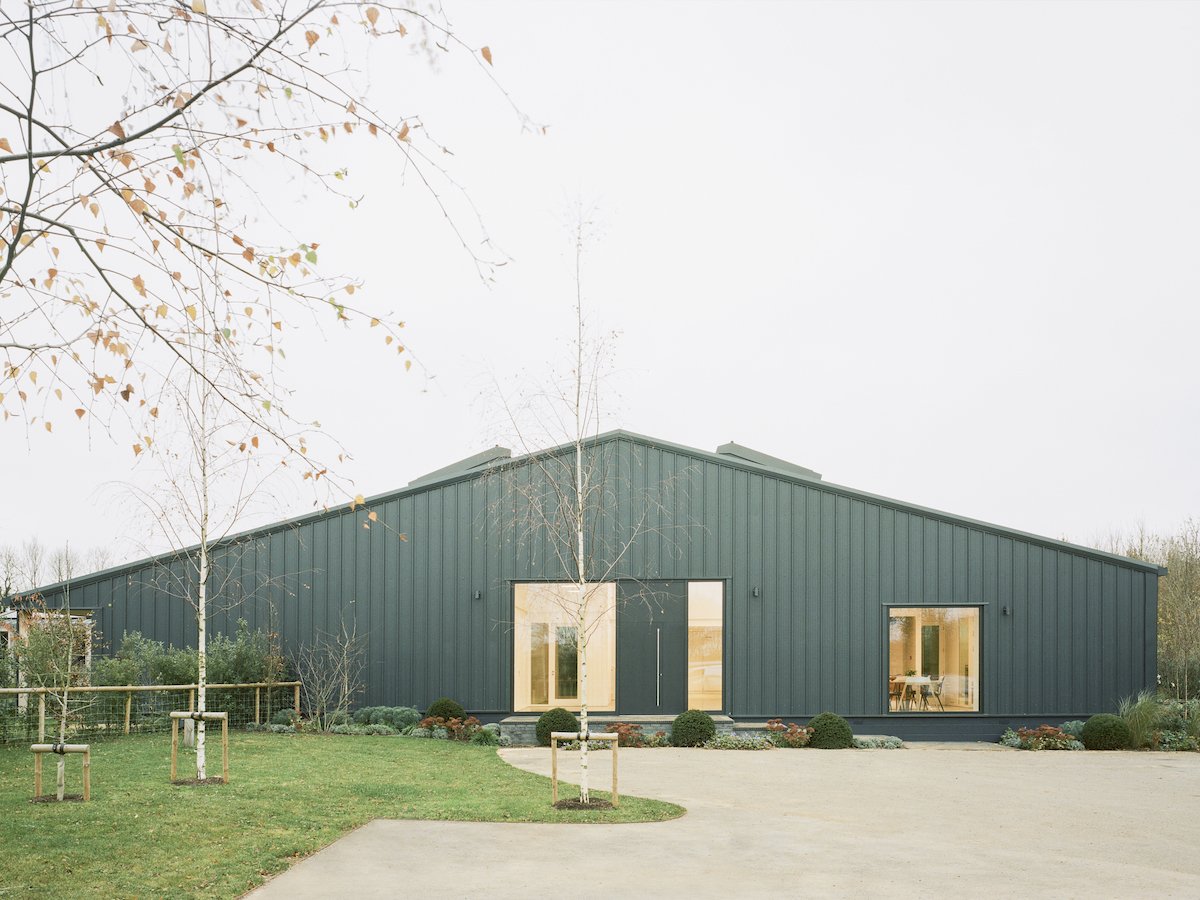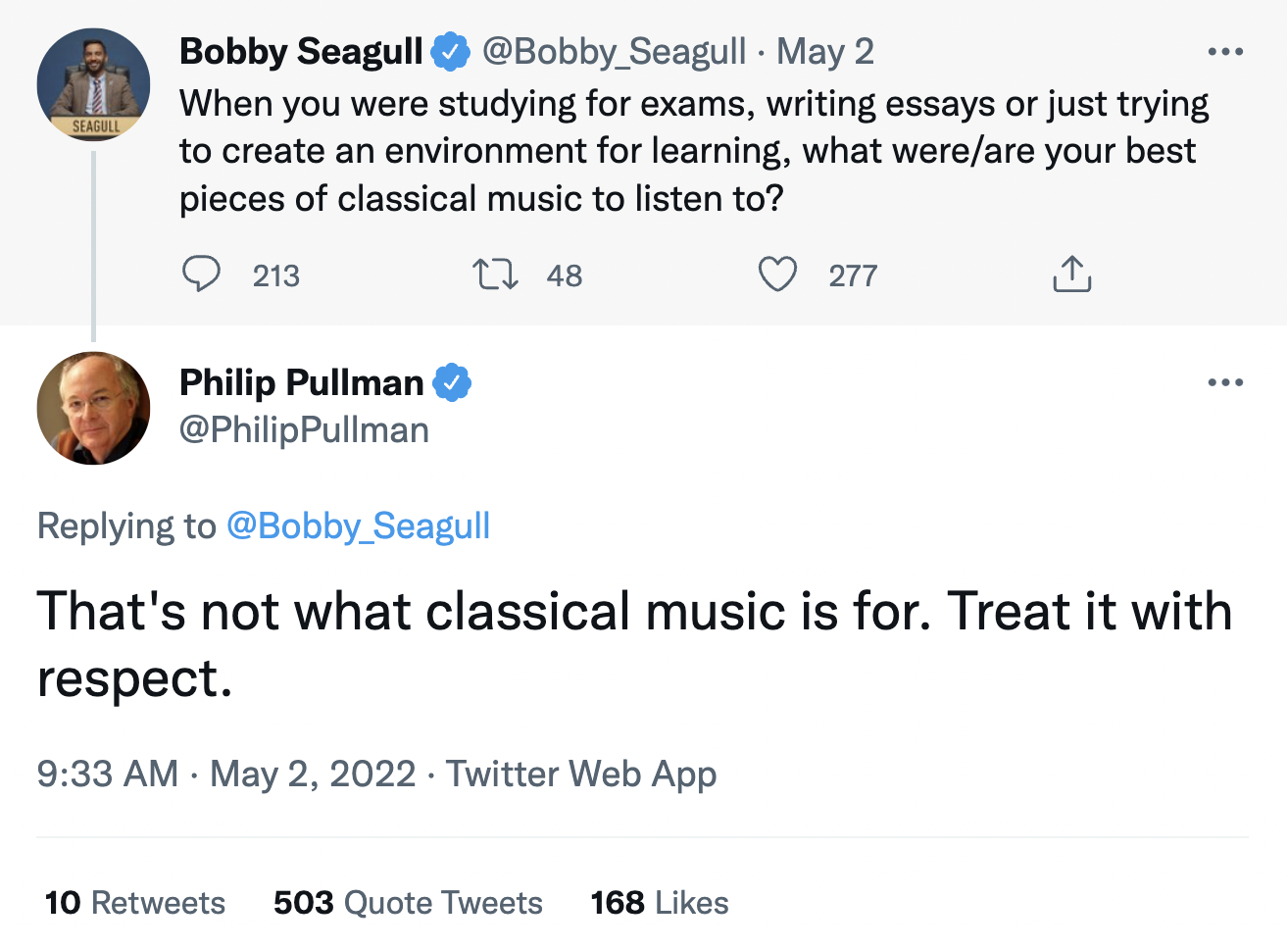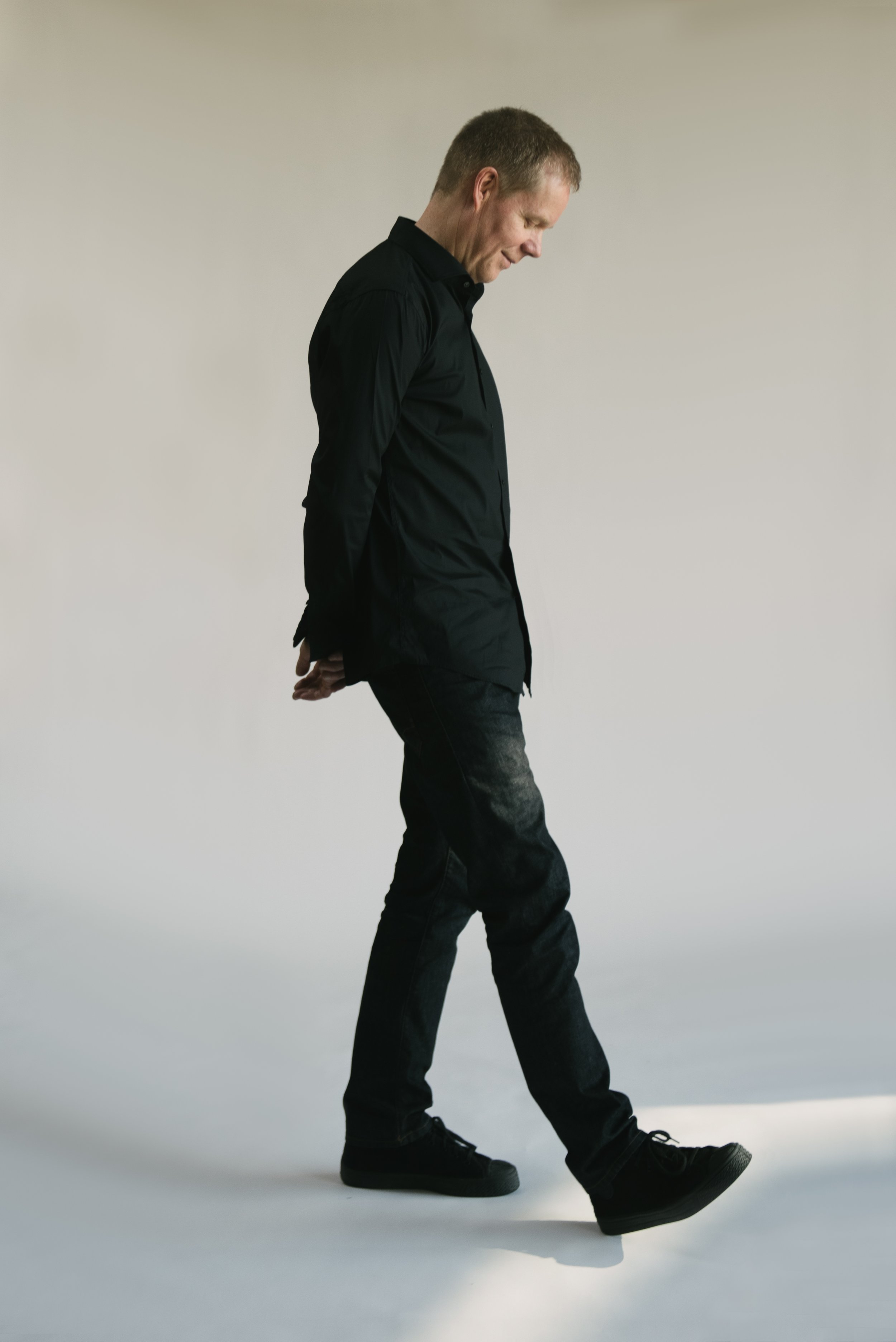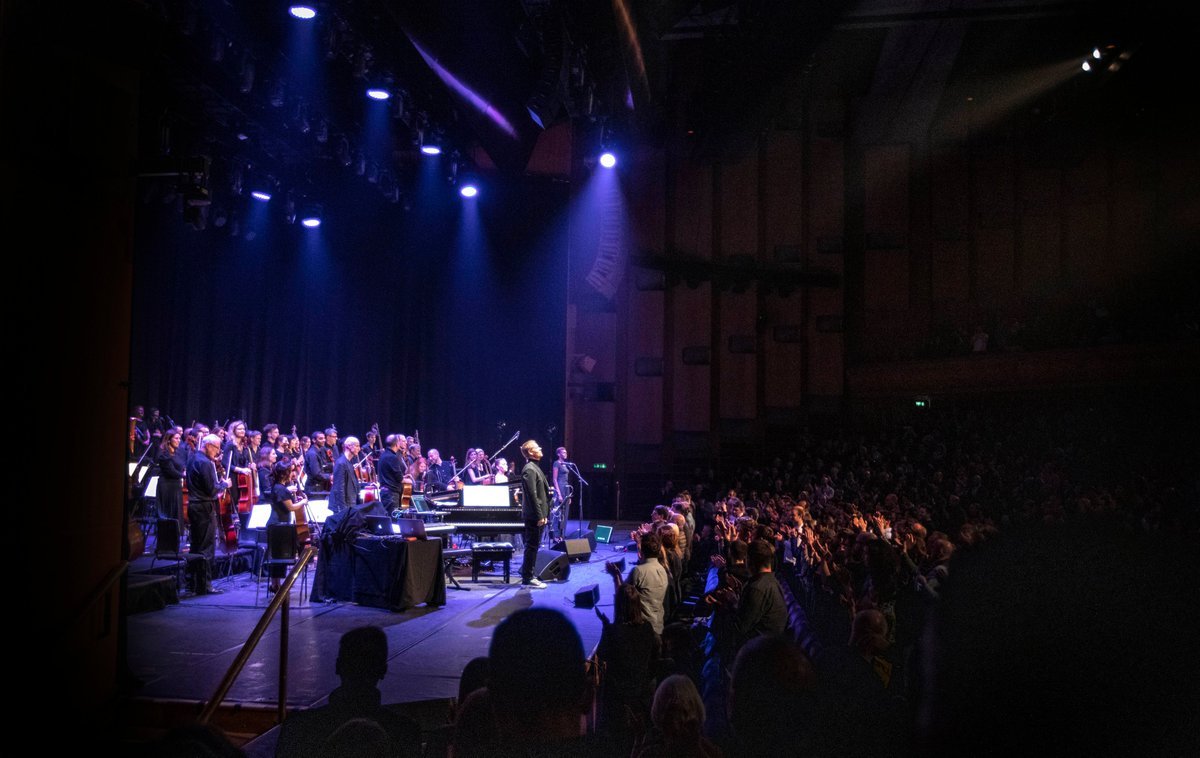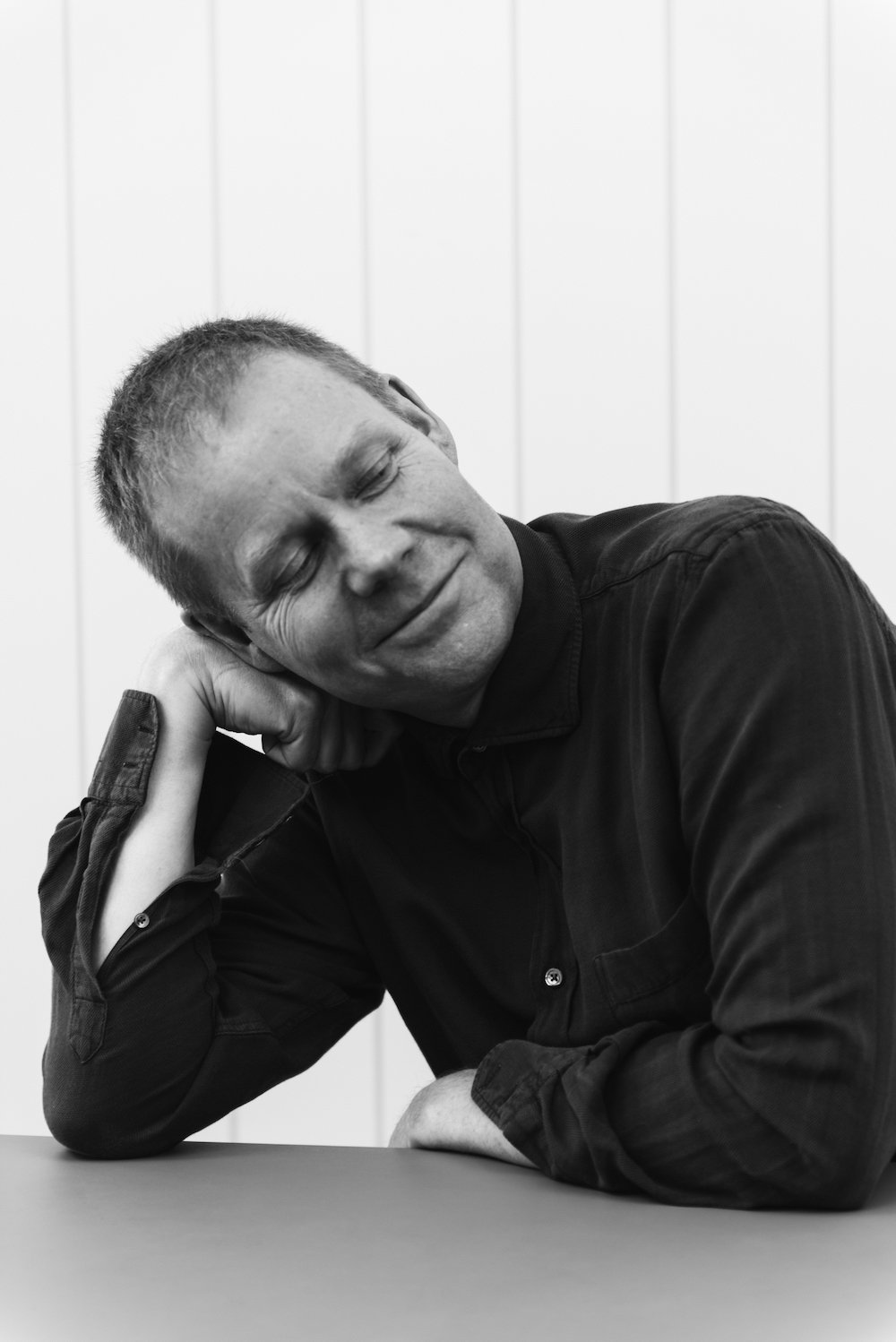Interview: Max Richter
Photo by Jennifer McCord
Trailblazing composer Max Richter stands as one of the most prodigious figures on the contemporary music scene. From synthesizers and computers to a full symphony orchestra, Richter’s music encompasses solo albums, ballets, concert hall performances, film and television series, video art installations and theatre works.
Hannah Fiddy chatted to Max about classical music gatekeeping, coping with the distractions of the online world, creating music that allows space for the audience to be present, and also his favourite weekend breakfast.
Let’s kick off with a quick-fire round...
Ideal Sunday breakfast? Wake up without being woken up then porridge (which I love), followed by some kind of scrambled egg dish. We're big coffee nerds in our house, so there’s always a lot of coffee preparation happening.
Any pets? Two black Labradors called Haku (named after the dragon in Studio Ghibli’s Spirited Away) and Evie, and a cat called Kiki (the character in Kiki’s Delivery Service). We're in the countryside so there are chickens and rabbits too.
Favourite city? Edinburgh and Berlin. My home is Edinburgh because I studied there and we lived there when our kids were tiny. And we lived for a long time in Berlin, a work-in-progress laboratory.
Studio Richter Mahr in the Oxfordshire countryside
Current reading material? I’m rereading Margaret Atwood’s The MaddAddam trilogy because I’m working on a ballet score for it in November. I read a lot of poetry, so the new Ocean Vuong book On Earth We're Briefly Gorgeous and Sylvia Legris’ new poetry collection. I’m also reading Byung-Chul Han, an amazing Korean-German philosopher whose big subject is the evils of neoliberalism.
Favourite concert hall(s)? The Elbphilharmonie (in Hamburg) and Concertgebouw (in Amsterdam) for acoustic music. It always feels like a special occasion when you play at Sydney Opera House because it's such an amazing building. I also love the Barbican – I’ve played there a lot over the years and it has a home-from-home feeling. I like the Berlin Phil because the audience is so close to you even though it's a 3,000 capacity, and the new Paris Phil too.
Favourite non-traditional venue(s)? We did the premiere of the original Recomposed at Berghaim in Berlin, which was cool. The premiere of Sleep was also in Berlin at the Kraftwerk, which is like a beautiful concrete cathedral.
The premiere of Sleep at Kraftwerk, Berlin (photo by Stefan Hoederath)
Composer you’d most like to meet? Schubert, Mahler or Stravinsky
Which song would get you on the dance floor? Anything by Chic, one of the greatest bands ever.
You’ve said that ‘composing is not a career that I would recommend to anyone. I think if you can possibly do something else, then go and do something else!’. What would your alternative career be? It is best avoided unless you can do absolutely nothing else, and I found already when I was quite young that I couldn't do anything else in a sustained and meaningful way. I'm very interested in stories, ideas and philosophy. I also always thought I might be able to run quite a good breakfast cafe, as long as I could shut the door at 11am.
Something that would surprise people to learn about you? I’m very good at ping pong, and I’m a big Eurovision fan.
Now for the more in-depth questions… One of my favourite things about your music is as a place to think. I think it’s important we all find this space, but it’s antithetical to how a lot of gatekeepers want classical music to be ‘consumed’. There is a pervasive view within some circles that we should be fully engaged with classical music at all times, and that to behave otherwise is disrespectful (see recent tweet from Philip Pullman, pictured). How do you see that conflict?
Classical music culture has got a hangover from the modernist era, which itself is a weird, twisted hangover of the romantic era. It's all to do with the visionary artist being smarter than the audience and delivering the masterpiece, and then we all have to bow down and try hard to understand it. It privileges certain kinds of experience, which is an active conscious engagement and analytical listening. There's lots of cultural capital and all kinds of baggage associated with it. All of that gets in the way of an ordinary, thoughtful, listening human and the material. I think that's a disaster.
It's true to say that, if I'm listening to a piece of Bach, I probably get more from it than I would if I didn't know harmony and counterpoint. But that doesn't mean that someone who doesn't know those things and hasn't had those privileges to understand those things should be shut out. That's a horrible attitude, and it's surprising how tenacious a view that is, as it’s at least 100 years out of date.
It goes back to that Schoenberg line ‘if it's for the masses it isn't art, and if it's art it isn't for the masses’. That's just terrifying, really, isn't it? To have that still echoing around is very sad. There's something about it that denies and invalidates certain people's affection and love for material. It's like their love is worth less, or their affection for a piece of music is worth less, because they're engaging with it in a different way. And I just don't buy it.
I don't think there are rules for these things and every work of art, every cultural object, has got as many doors on it as there are people. The listeners bring their own biography, they bring their own sense of the world and their sense of what music is, to the piece, and then you get this interaction and that's exciting and interesting.
How much are you composing with the intention of giving people that space to reflect, or is it just the style that you gravitate towards naturally?
This goes back to when I was training as a composer, both at the University of Edinburgh and at the Royal Academy of Music. I was studying within the modernist tradition, so super-complex music. Music which had a manifesto quality about it, built within particular structures. That was the orthodoxy, and if you were writing simple music, the view was that was because you were stupid. I started to really question this: “what is this thing I'm doing? Why do I want to do it?”. I came to the conclusion that composing for me was about communication, it's about talking, it's about telling stories, and engaging one-to-one with a listener, with an audience – a collection of individuals.
And so then I started thinking that if I'm trying to do that, I need to be working in a medium which has some intelligibility, because I want to connect to people. I want us to understand one another. Within modernism, even though there are some incredible masterpieces in that tradition, generally speaking it feels like you're being lectured at. And I didn't really want to lecture the audience. I wanted to have a conversation, which means leaving space for the other person. So I set out to develop a language which was very plain spoken and direct, where I could make every note count.
This is all when I was studying with Berio in Italy, whose compositions generously and undemocratically include all kinds of music styles. He said ‘Why all these notes, Max? Why is this page black with notes?’ He deflated my ambitions to write the most complicated piece of music in the world. I was also working as a pianist, and was playing a lot of the American minimalists, so that percolated through as well. I decided I'd like to try and develop a language which could include all the things I was interested in and feel simple. It wouldn't have to be simple, but it would have to feel simple to the listener so that it’d be very approachable.
That space that you offer to your listeners – how do you carve that out for yourself? Presumably listening to your own music doesn’t have quite the same effect on you…
No! The piece that you end up with is a negative map of the directions you didn't take and places you didn’t go. If I ever listen to a piece of mine, which is almost never (other than when we play them in concert), it's frustrating because it's only that version of the material that’s remaining, of all the possibilities. It's like the tip of an iceberg, so it’s a weird experience.
If you now hear something you wrote 10 years ago do you think ‘if I’d written it now, I probably would have chosen another route’?
All the time.
You have a large following on social media, and those channels can be a powerful enemy against creating space for yourself. There’s constant noise, stimulation and a barrage of other people’s opinions. How do you cope with the distraction of that?
I tend to keep away from the online universe, generally. But I do find it distracting and I think everyone has to find their own way to accommodate these sorts of demands. I see my work as operating in quite a limited space. It’s about what I can do on this piece of paper with these notes. That's the totality of my zone of interest and sphere of influence, so I just focus on that.
I was struck by how calm you seemed on stage at the Barbican (at the VOICES concert in February 2020), both presenting and performing. As a self-proclaimed ‘cripplingly shy’, geeky child and an introvert, how do you find having so many followers online and performing in the world’s largest concert halls?
VOICES at the Barbican Centre (photo by Mike Terry)
I feel fortunate that I found a way to make my way in the world, even though I'm a very shy person. Music has allowed me to say the things I want to say but in a way which I can actually say them. Performing music is a wonderful privilege. When playing my own music, I play little games with myself mentally to overcome any anxieties I might have about it. For example, if I'm playing the piano, and I play something that isn't on the score, I give myself a free pass because I'm the composer, so if that’s how I played it, that’s how it goes. It’s not like I’m mashing up a Beethoven sonata.
Would you be more nervous if you were performing a Beethoven sonata rather than your own music?
Definitely, yes.
You said of Berio: ‘When I showed him a score of mine, it felt as though he was reading my mind, which is a bit scary because he managed to see what was on the page but also what I meant when I wrote it.’ Having been described as the ‘most streamed classical composer’, exceeding one billion streams and one million album sales, does this lead to any shyness about the world seeing you as you really are?
I'm making the material that I would like to see or hear but no one's written it. So at one level, I'm writing for myself to figure something out, to discover or explore a question, and it’s an unexpected bonus that other people might be interested in that question too.
As a musical explorer, with the job of making decision after decision about the map each piece follows, what’s your relationship with perfectionism?
Perfectionism is obviously not something which is achievable, but I am really interested in the sensation of inevitability in a piece of music. I'm very keen on a piece of music having a sense of identity, of a strong feeling of the landscape that it inhabits, or the story that's being told. And that feeling that you have when you're listening to some pieces of music that it could only be that way. Something which has an internal logic and a coherence, which makes it feel inevitable.
That’s perhaps a perfection in itself.
In a way it is, and it's something which I work hard to achieve. A piece of music doesn't have to be complex in order to do that. Trying to achieve that with simple means is something I spend a lot of time working on.
Your first album was released in 2002 when you were 36. I think some people in the creative industries will find that reassuring, as it can feel like a race to make it by the age of 30. Can you tell me more about your journey to reach that point, and some of the jobs that you did in your 20s and 30s to support your creative work?
When I finished studying I did a year in Florence with Berio, and some friends and I put together a multi-keyboard ensemble (Piano Circus). I was working as a pianist and I did a lot of piano teaching, session work and production things with electronic folks.
I was writing all the time, but no-one was playing the music at all. I just started to try and do more and more of my own things – hassling all kinds of people to try and get my music programmed in concerts or by ensembles and festivals. Really, without any success at all.
I was going to ask about a time in your career when you felt that you failed or had a setback – sounds like this might be it!
Yeah. My only recourse was to try and make a record so people could hear it that way. So I then set out to write Memoryhouse. It got picked up by Late Junction (a BBC show that briefly had a record label). Having spent 10 years working towards it, I thought ‘Memoryhouse is out…this is it!’
They played it on the radio a little bit and a few people (mainly other composers) got hold of the record, but then nothing. We didn't get a chance to play it live. There was no advertising, there were no reviews, there was no nothing. And then they deleted the record and they shut the record label down. So that was the end of that. A mere 10 years after that, we managed to play it live.
One final question. You’ve previously said that everybody has something that no-one else has got and is trying to find out what that is. So, what do you think you’ve got?
I don’t know... I mean I think that’s true but what I'm getting at is that everyone's biography is unique. And their relationship to music, to the world, to the people around them, is something which is absolutely singular to them. That's the raw material, that’s where you work from. From how you’ve got to that point in your life. Technical training – knowing how to combine notes, harmony, counterpoint, all of that – is a toolkit that you have to have otherwise, you can't form and shape the material in a sculptural way. So you have to have all of that but more than that, you have to have a sense of your point of origin, of where you're coming from and why. Otherwise you're not going to make work which is a voice, which is distinctive. I think any artist is trying to figure out ‘what is it that your voice really is?’.
Max Richter’s new album, The New Four Seasons, recorded with the Chineke! Orchestra and soloist Elena Urioste, is out on 10 June 2022.
Max Richter’s only outdoor UK performance this year is at the London Royal Hospital Chelsea on 16 June 2022.


